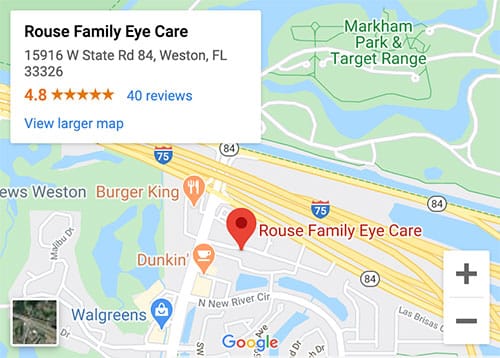Eye Conditions Related to Genes
There are so many things that you can do to keep your eyes healthy. Simple lifestyle habits like eating right, wearing UV-rated sunglasses outdoors and visiting your eye doctor in Weston, FL on a regular basis are just a handful of them. But for all the things that are within our control, there are just as many things that can go wrong simply because of genes. Many people don’t realize how genes play a role in eye health, especially when a person lives long enough for certain conditions to progress to a point where they’re problematic. Here are some of the most common eye conditions that have been linked to gene expression.
Macular Degeneration
Macular degeneration, particularly the age-related form (AMD), has a strong genetic component. Variants in genes such as CFH and ARMS2 are associated with an increased risk of developing AMD. These genes influence the immune system and the way the body handles oxidative stress in the retina, which is a critical factor in the progression of this disease. People with a family history of AMD are more likely to develop it themselves.
Keratoconus
Keratoconus, a progressive thinning and bulging of the cornea, also has a well-documented genetic basis. This condition is often linked to mutations in genes related to collagen production and connective tissue health. While environmental factors such as eye rubbing and allergies can exacerbate keratoconus in Weston, FL, its hereditary nature is evident, as it frequently runs in families.
Glaucoma
Glaucoma has several genetic links as well. Primary open-angle glaucoma, the most common form, is associated with mutations in genes such as MYOC and OPTN. These mutations can alter the fluid dynamics within the eye, leading to increased intraocular pressure. Individuals with a family history of glaucoma are at significantly higher risk.
Understanding the genetic underpinnings of these eye conditions is vital for advancing both diagnosis and treatment. Genetic research continues to provide insights into targeted therapies, personalized care, and preventive measures. Don’t feel hopeless just because your Uncle John has glaucoma or your grandmother suffers from macular degeneration. Genes play a role, but they don’t determine your fate unilaterally. With proactive care from your eye doctor, positive outcomes are possible.





Leave a Reply
Want to join the discussion?Feel free to contribute!